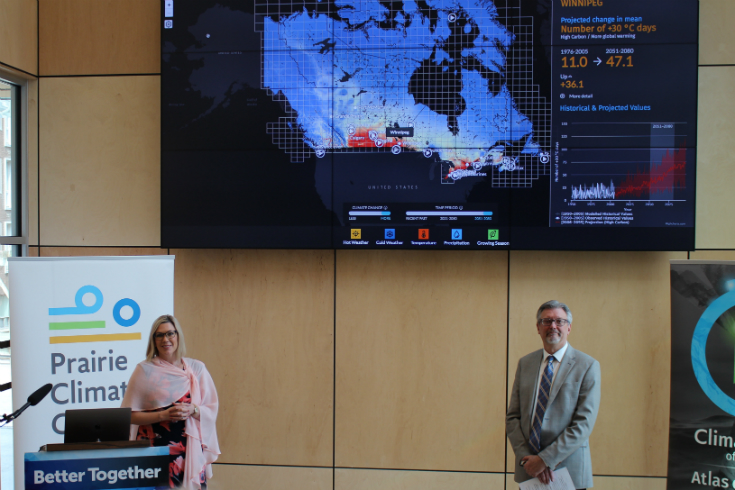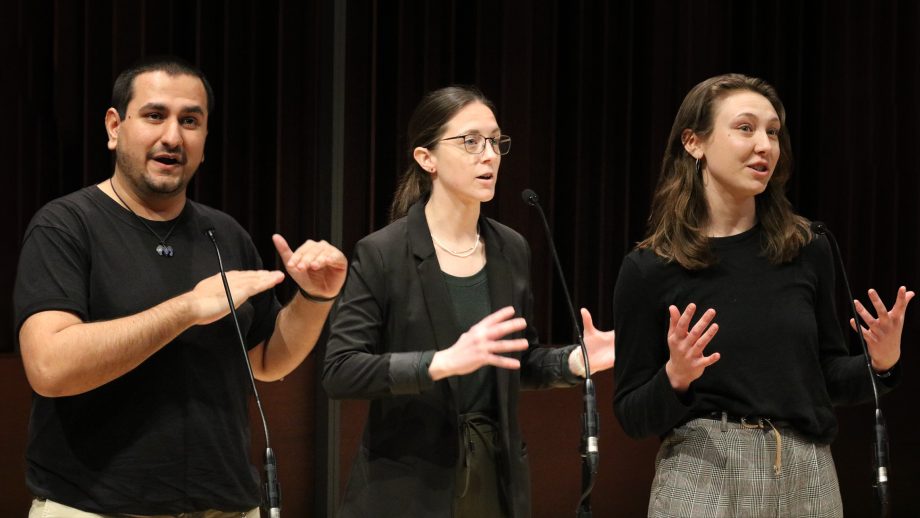
Minister Rochelle Squires, Dr. Danny Blair, ©UWinnipeg
The Manitoba government provided $200,000 to the Prairie Climate Centre to support the continued development of the Climate Atlas of Canada, with a new section devoted to agriculture unveiled to coincide with Earth Day, Sustainable Development Minister Rochelle Squires announced today.
“The effects of climate change are real, and our support of the Prairie Climate Centre will allow them to further customize the Climate Atlas of Canada for Manitoba,” Squires said. “With our Made-in-Manitoba Climate and Green Plan we are working to make a difference. Having this kind of information will support applied decision-making for all Manitobans. The newly released agriculture section can help guide local producers directly affected by climate change.”
The Climate Atlas of Canada is a next generation climate science and communication tool that allows users to see data from 12 global climate models for about 2,000 towns, cities and regions, and has 250 corresponding interactive map layers developed across the country. Included in the atlas are videos, articles and topics that help tell the story of climate change, its potential impacts in Manitoba and opportunities for Manitobans to be part of the solution.
“Our researchers are deeply committed to working with partners to make science accessible and solve problems,” said Dr. Annette Trimbee, president and vice-chancellor, UWinnipeg. “The support of the provincial government allows the research team at our Prairie Climate Centre to continue creating data and narratives on climate change that Manitobans, and all Canadians, from every walk of life can use to make informed decisions.”
The theme of this year’s Earth Day, which falls on Sunday, April 22, is a call to end plastic pollution. Manitoba has taken strides in that direction with industry stewardship programs that champion recycling. Squires has established a Recycling Task Force, which will provide further recommendations on waste reduction and recycling as well as addressing the issue of single use plastic bags.
“Manitoba is committed to the goal of making this the cleanest, greenest, most climate-resilient province,” Squires said. “Through the continued work of my Recycling Task Force, and the information and expertise provided by the Prairie Climate Centre, we’ll be able to closely monitor our progress.”
The University of Winnipeg embraces the concept of plastic reduction and in 2009, was the first university in Canada to ban the sale of water in plastic bottles on campus, effectively diverting about 38,400 plastic water bottles from the landfill every year.
For more information on the Climate Atlas of Canada, visit www.climateatlas.ca.




